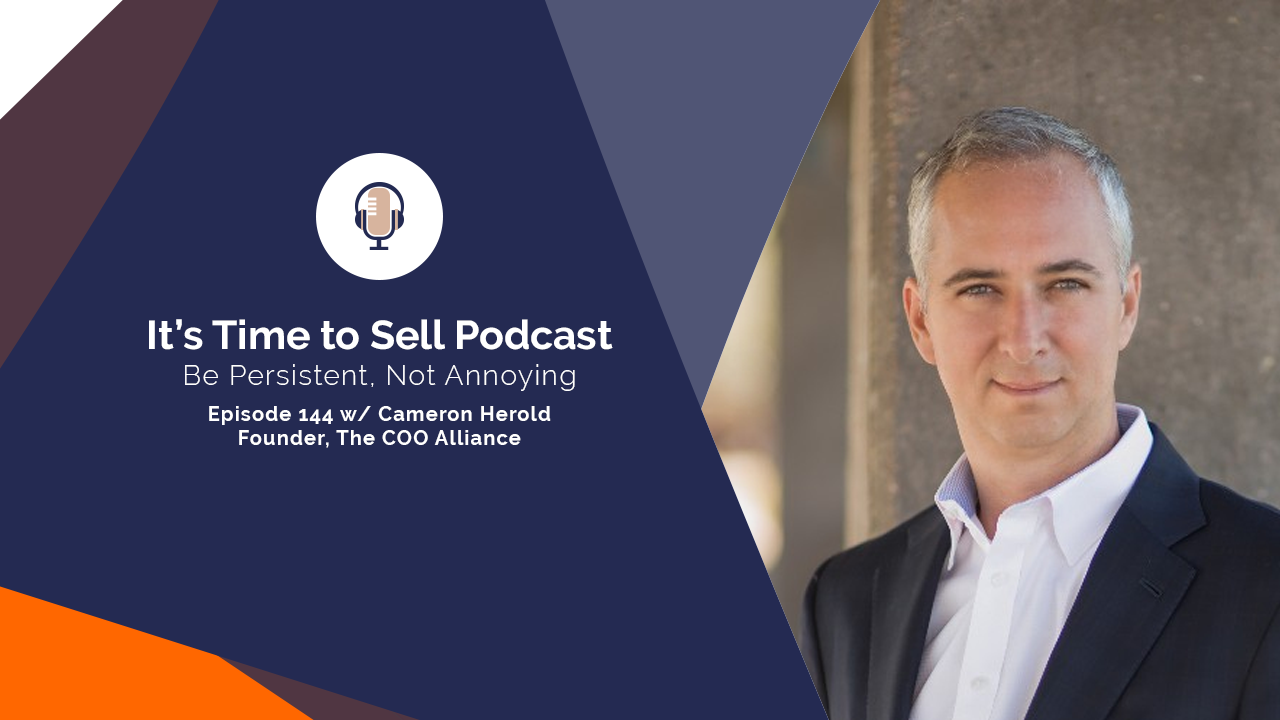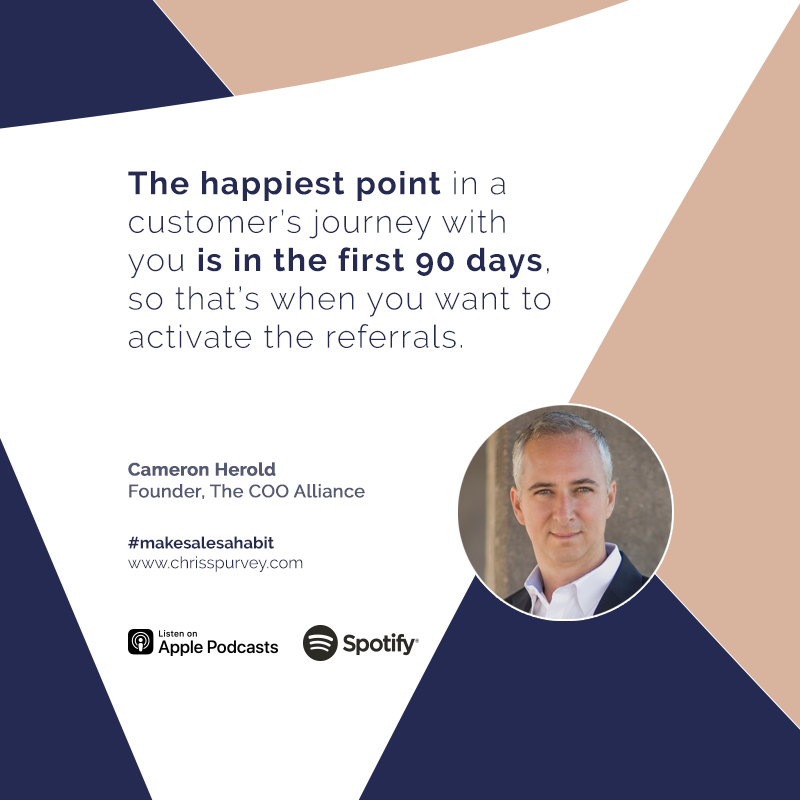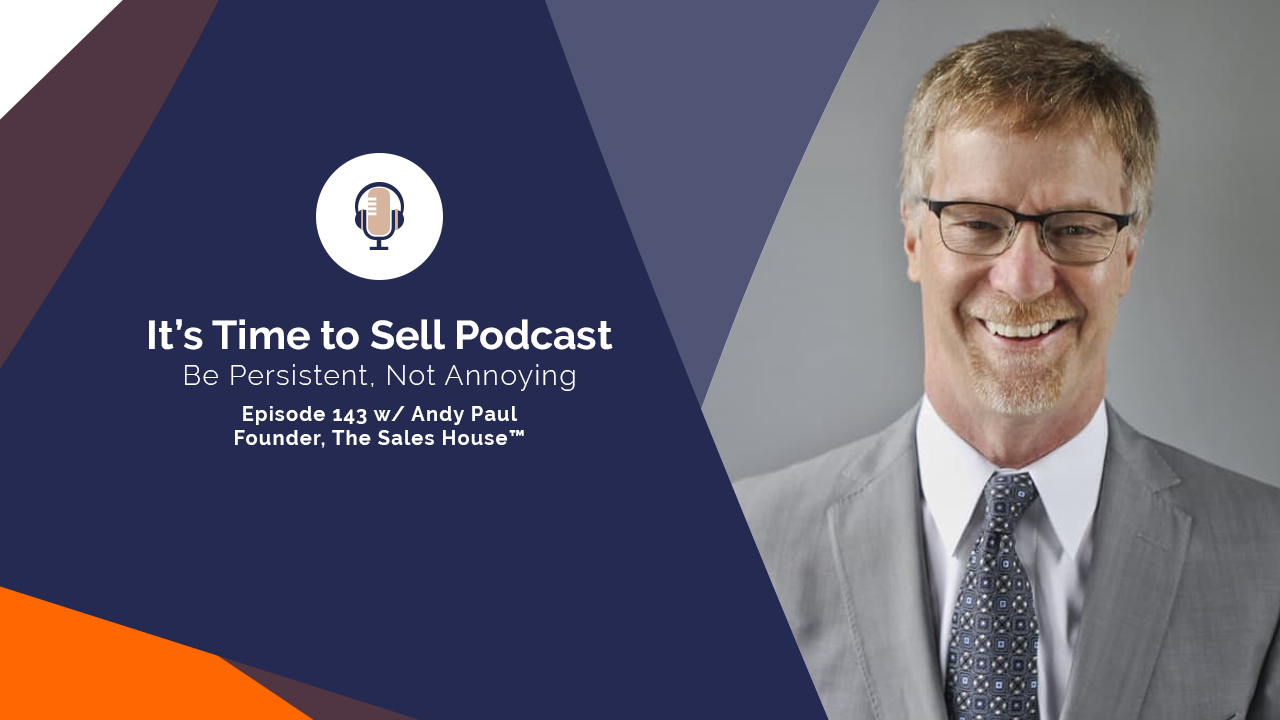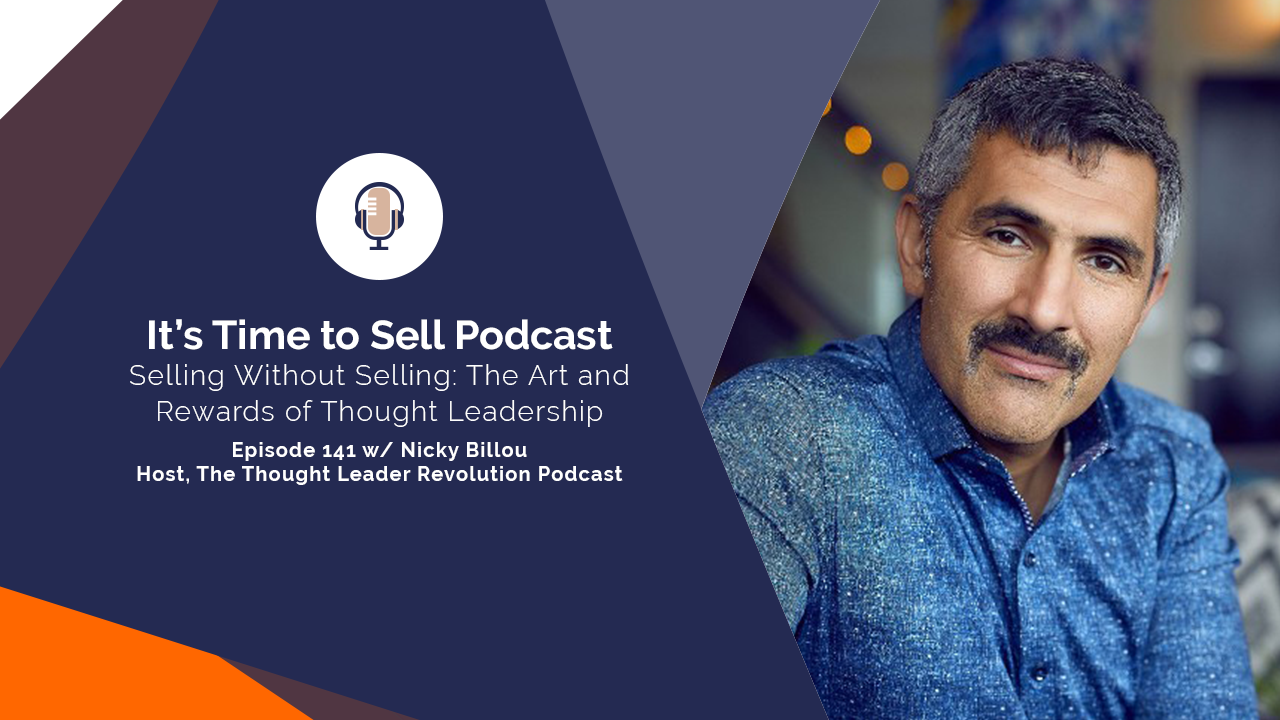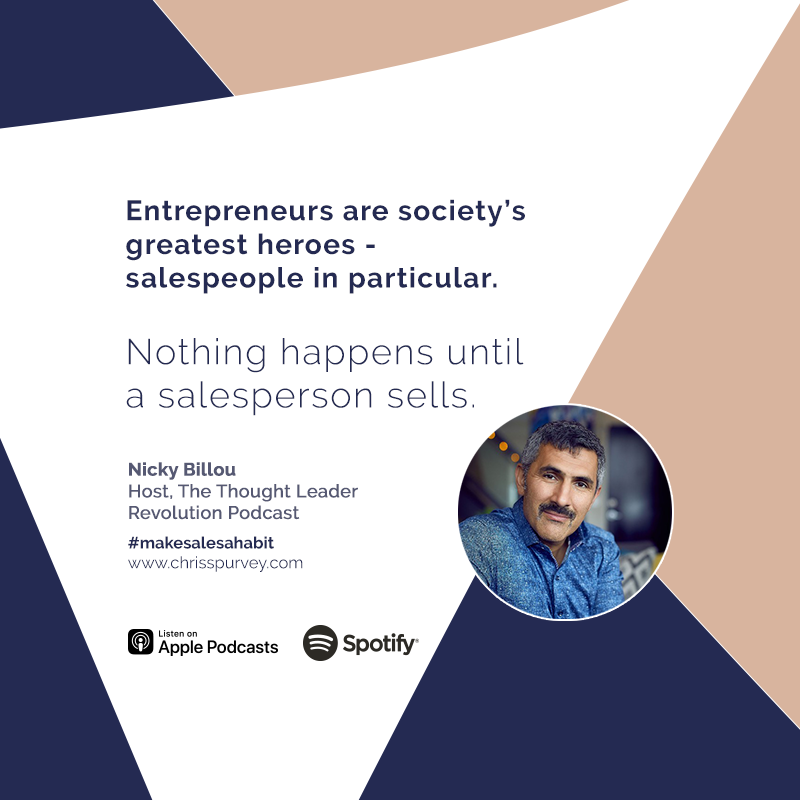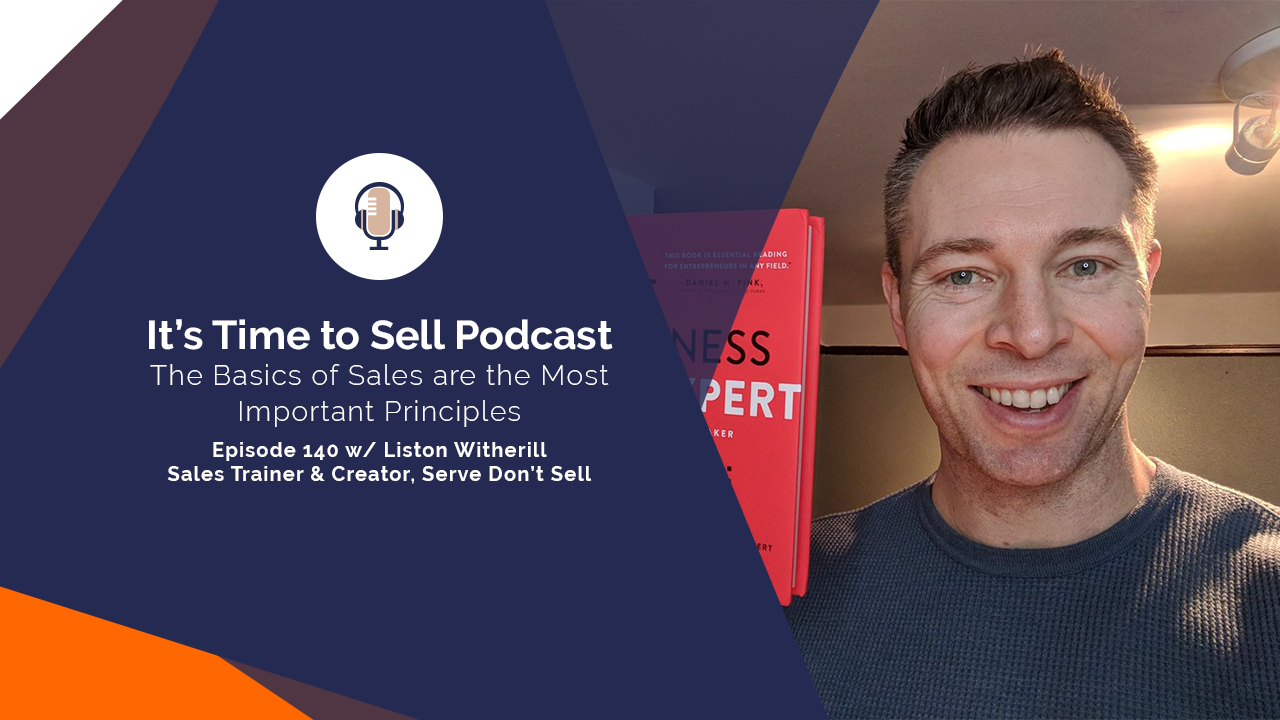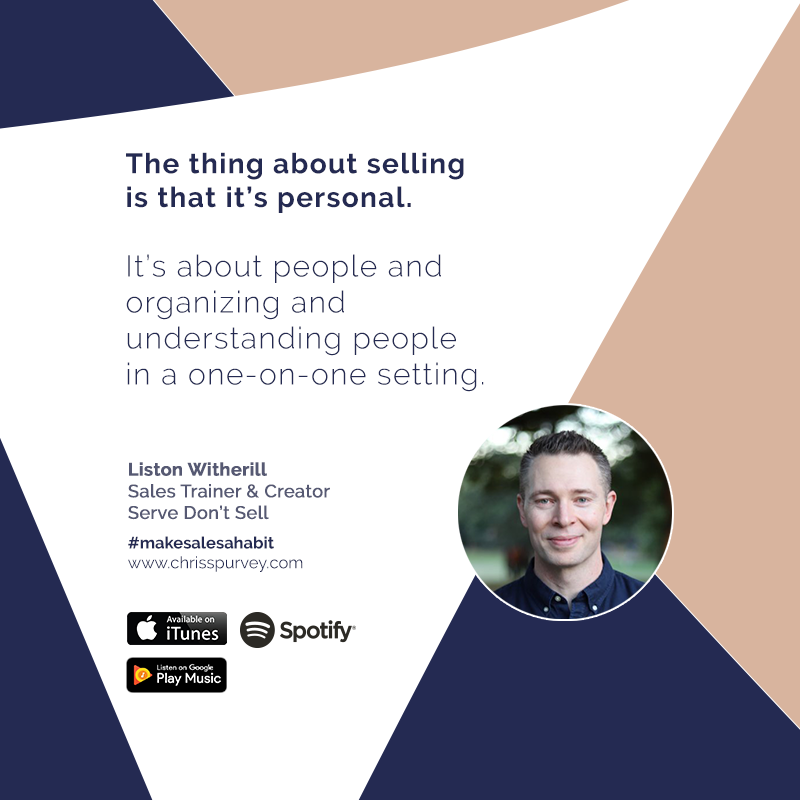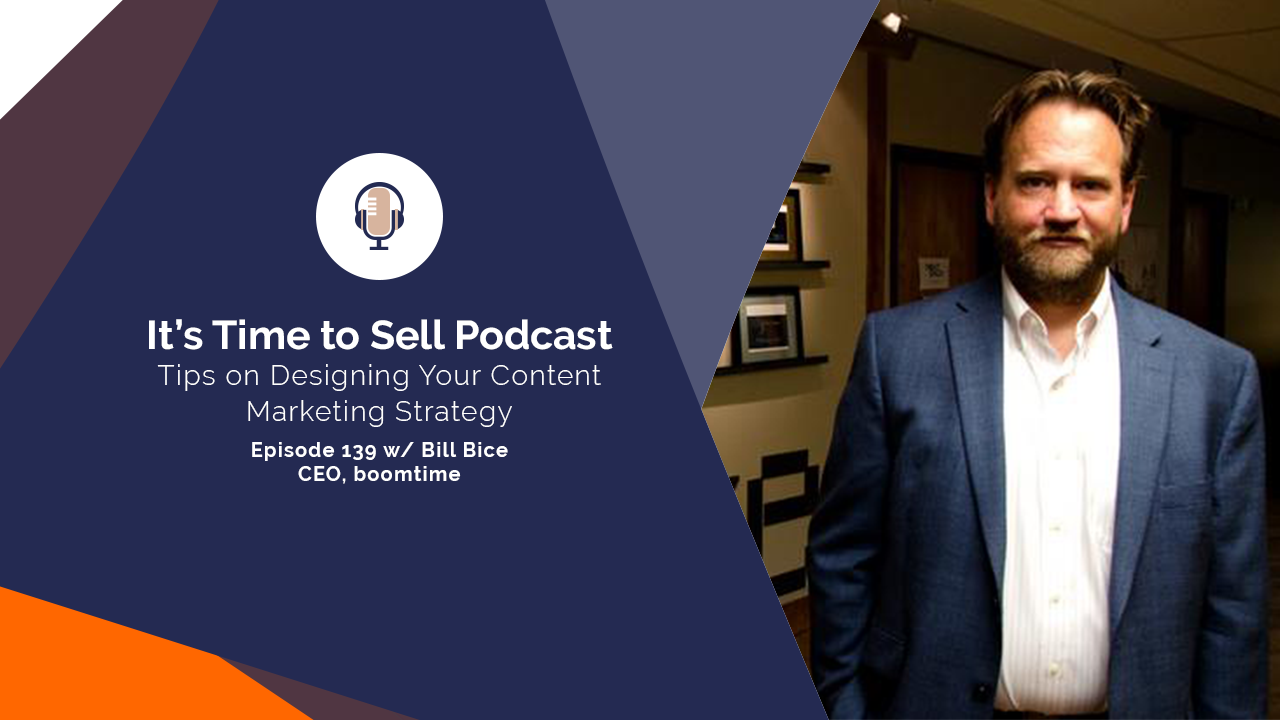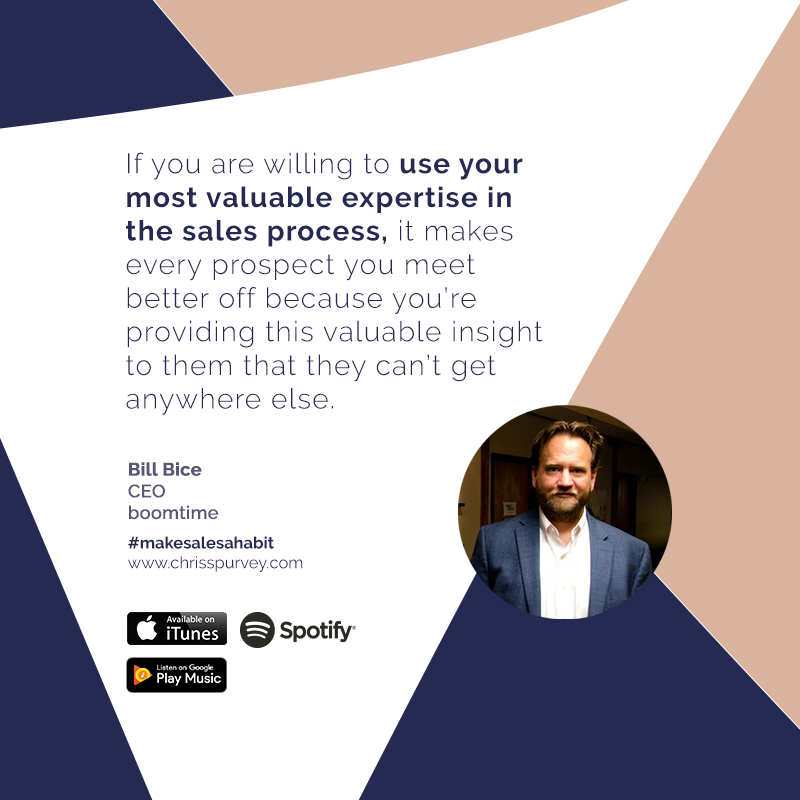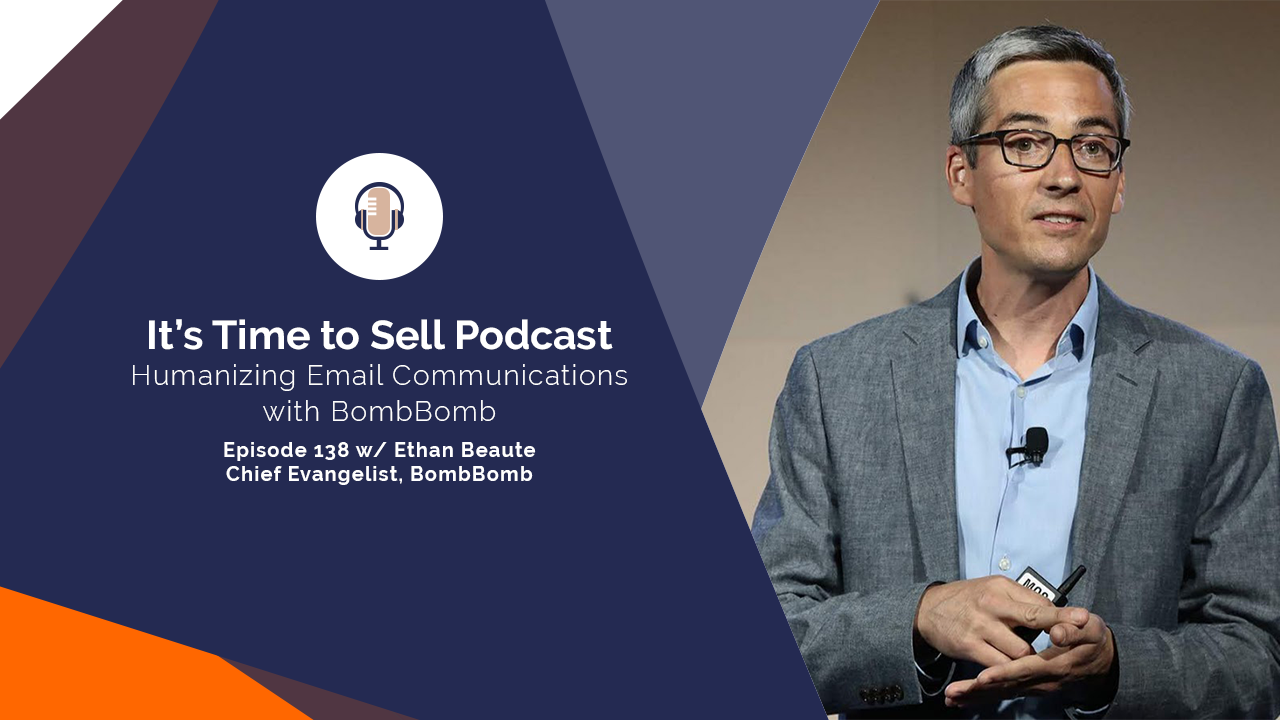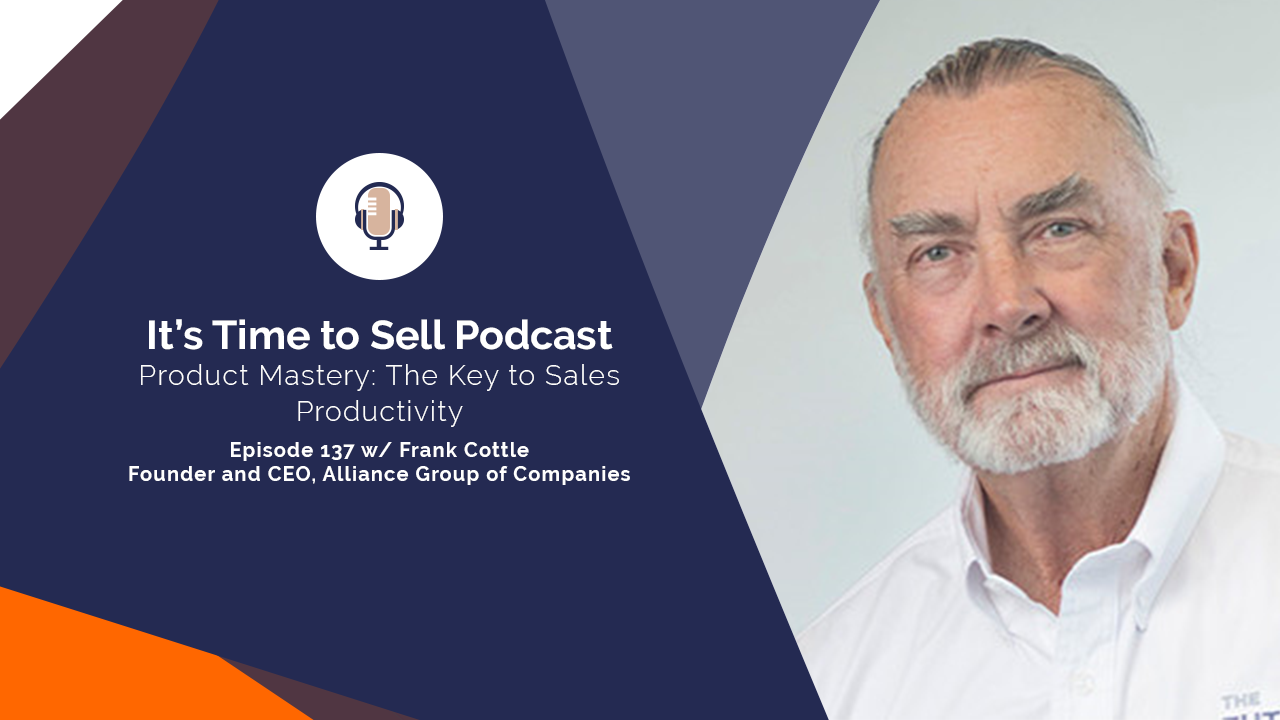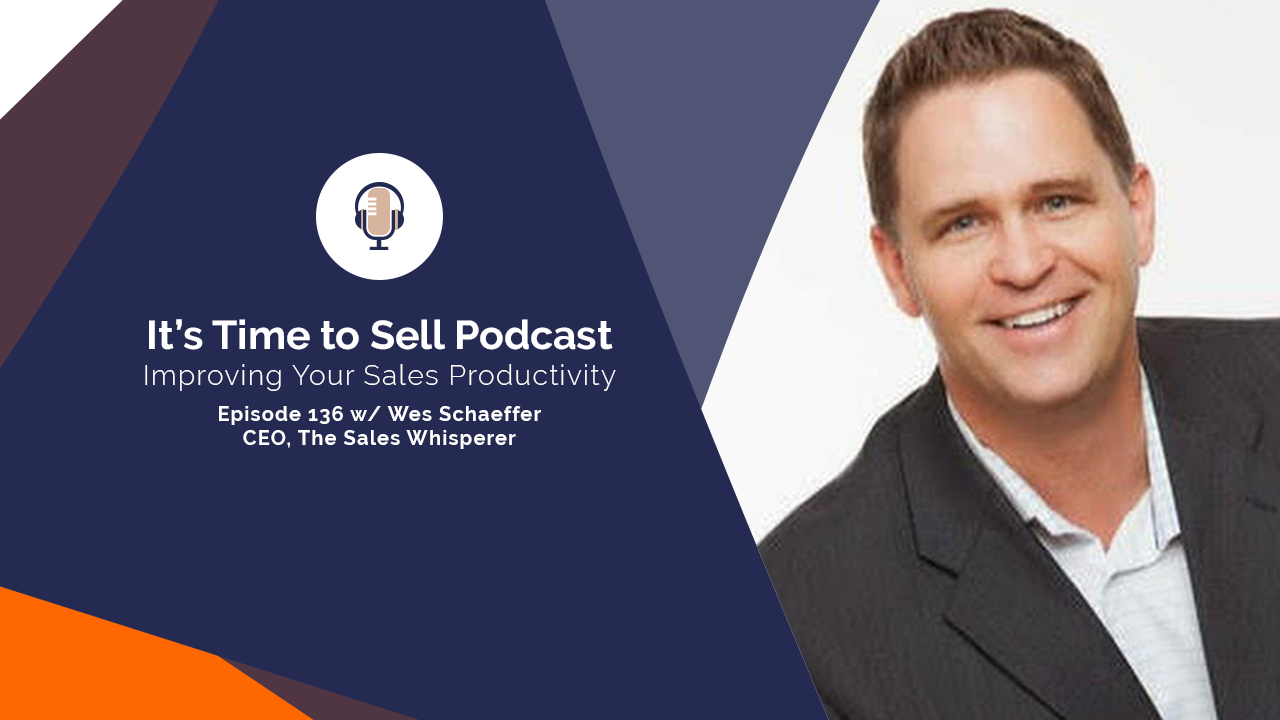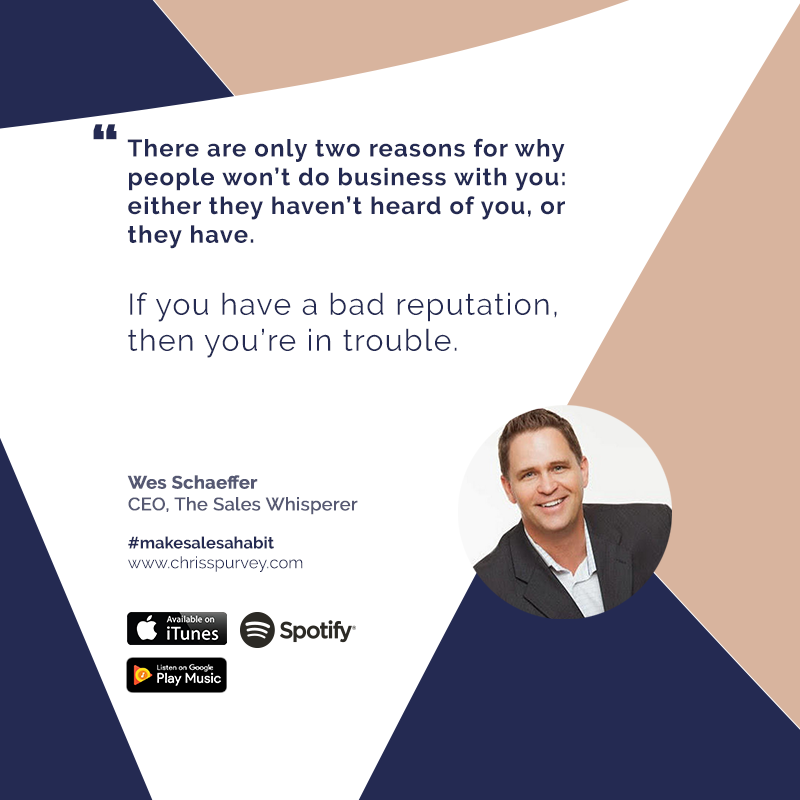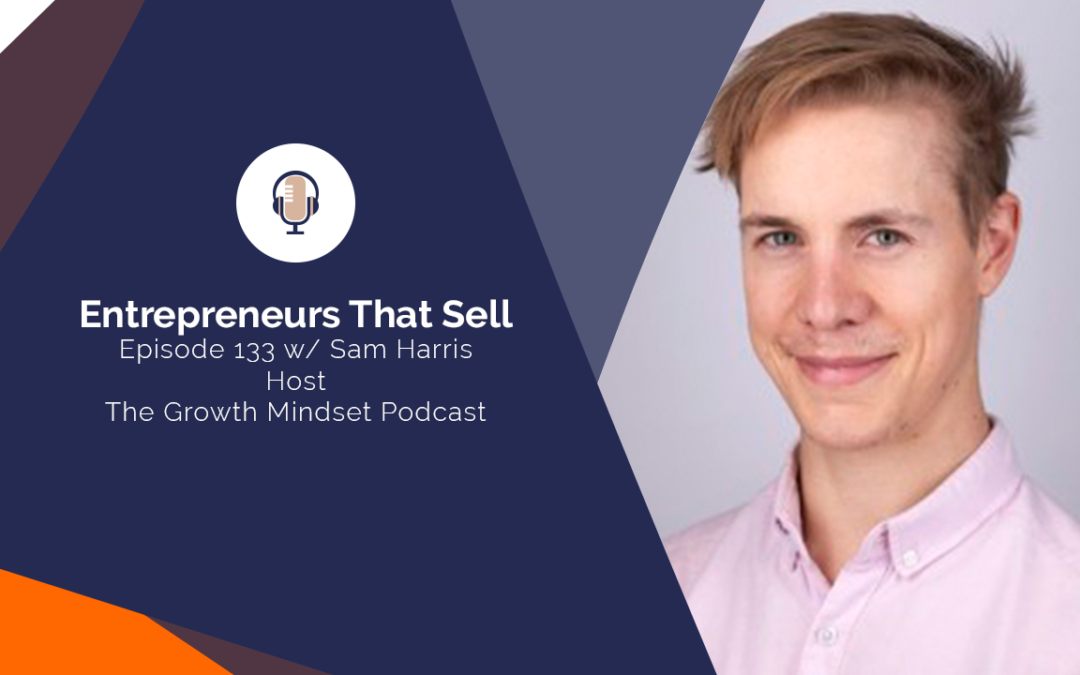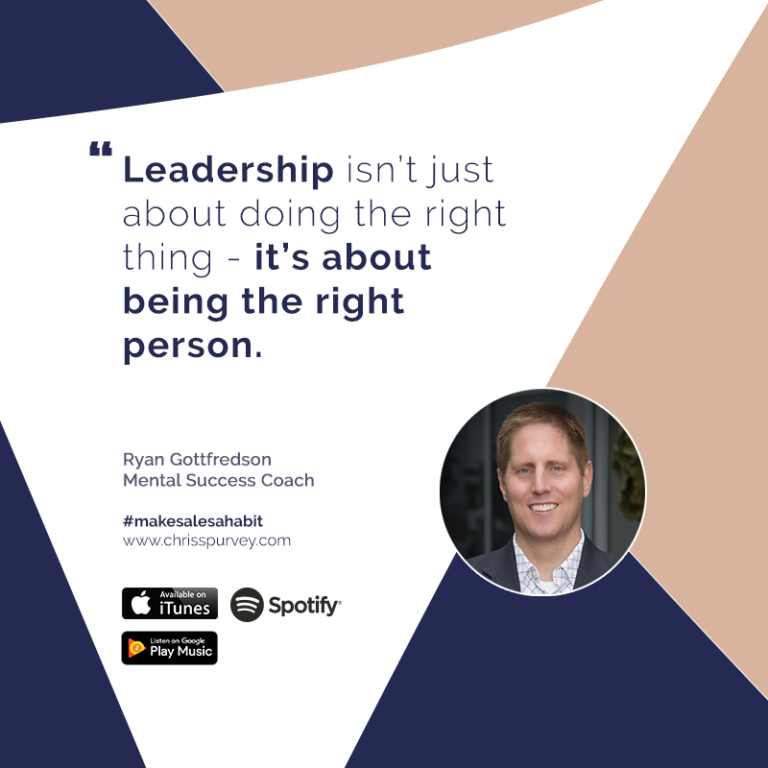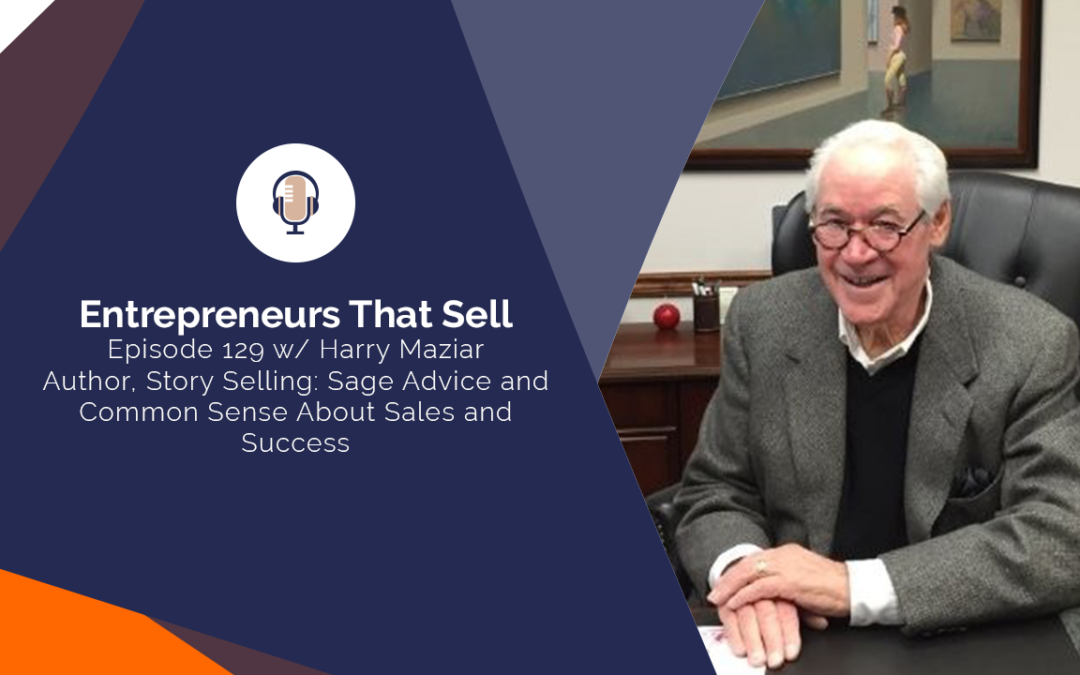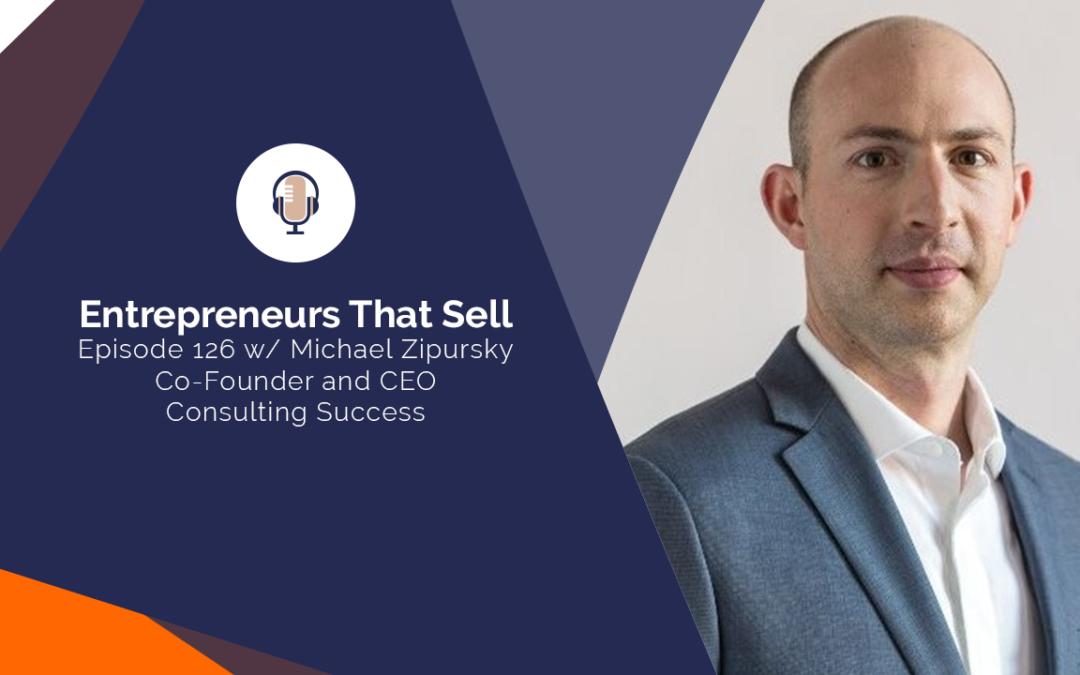144 How to Gain and Consolidate New Referrals (w/ Cameron Herold)
Cameron Herold is a top business consultant, best-selling author, and speaker. Named by Forbes Magazine as “the CEO Whisperer”, Cameron has touched thousands of businesses directly and indirectly through his work. By age 35, he had built two $100 million companies, and by 42, he had grown 1-800-GOT-JUNK? from $2 million, to $106 million in revenue in just six years.
“The happiest point in a customer’s journey with you is in the first 90 days, so that’s when you want to activate the referrals.”
Cameron Herold is a top business consultant, best-selling author, and speaker. Named by Forbes Magazine as “the CEO Whisperer”, Cameron has touched thousands of businesses directly and indirectly through his work. By age 35, he had built two $100 million companies, and by 42, he had grown 1-800-GOT-JUNK? from $2 million, to $106 million in revenue in just six years.
In this episode, we talk about:
Gaining leads through referral marketing
Outreach strategies in social media
The perfect time to ask for referrals
Cameron’s system for consolidating referrals
To learn more, listen to the full episode!
The Happiest Point of a Customer’s Journey With You
The happiest point in a customer’s journey with you is in the first 90 days, so that’s when you want to activate the referrals.
It’s kind of like dating and marriage - it’s the happiest for the first few weeks. So in that customer journey, make sure to activate the referrals within a 90 day period.
Why Referrals Are Powerful
When you walk down a street and you see a great restaurant, but it’s empty, and you see another great restaurant with a lineup of people, you almost want to get in the lineup even if it takes some time because you feel like it’s got to be good because people trust the business.
Referral marketing is the same way - when people trust you and is confident about your business, it will be easier for other people to trust you as well.
Want more? Listen to the FULL episode below:
143 In Sales, Building Relationships Is Imperative (w/ Andy Paul)
Andy Paul has been in B2B sales for over 40 years. He’s sold everything from computers to SMBs, to complex communications systems to the world’s largest enterprises. He’s been responsible for hundreds of millions of dollars in new business, and now he teaches ambitious salespeople, sales teams, and companies how to grow their revenue.
“The bottomline is that sales has always been a very human thing. And if you try to automate everything and lose that personal touch in your sales process, then you’re going to lose out.”
Andy Paul has been in B2B sales for over 40 years. He’s sold everything from computers to SMBs, to complex communications systems to the world’s largest enterprises. He’s been responsible for hundreds of millions of dollars in new business, and now he teaches ambitious salespeople, sales teams, and companies how to grow their revenue.
In this episode, we talk about:
How to build relationships in business and in sales
Factors that influence a consumer’s buying decision
New ways of ‘re-humanizing’ things
Training people to be more personal with their sales approach
Setting intentions and value propositions before meeting with clients
To learn more, listen to the full episode!
Building Relationships Is Imperative
There’s a developing mythology that sales has fundamentally changed, and that your buyers don’t have time for you, that everything has to be done fast at a superficial level, and that’s just not true.
Sales is still a human business. It’s you connecting with another person at some level. We may not be doing it face to face like we used to, but it’s the same imperative.
A Consumer’s Buying Pattern
Buyers are still making emotional, intuitive decisions to buy from you. People make emotional decisions and then justify them with logic. That hasn’t changed. The fact that people can access more information nowadays makes the task of building relationships with consumers even more important, to help them make sense of all the information they have gathered.
The bottomline is that sales has always been a very human thing. And if you try to automate everything and lose that personal touch in your sales process, then you’re going to lose out.
Sales is a Collaborative Work
This idea of work being more collaborative is certainly true in sales. You’re not really selling these days, it’s more about managing collaborations. Any work that you do within a corporation is team-based, and so what you really need to focus on is how to teach people how to build relationships.
Want more? Listen to the FULL episode below:
142 Be Persistent, Not Annoying (with Shawn Finder)
Shawn Finder is the CEO of AutoKlose, a new revolutionary sales automation platform that is used by 3000+ sales professionals around the world. He is also the author of The B2B Sales Handbook and is among the Top 25 Sales Engagement Influencer.
“If somebody says ‘no’, it doesn’t mean ‘no’ forever. You just have to continue to be persistent - not annoying.”
Shawn Finder is the CEO of AutoKlose, a new revolutionary sales automation platform that is used by 3000+ sales professionals around the world. He is also the author of The B2B Sales Handbook and is among the Top 25 Sales Engagement Influencer.
In this episode, we talk about:
What makes a good salesperson
How to turn no’s into yeses
Pre-conceived notions about sales that hold people back
Email vs. Cold-Calling
AutoKlose, Sales engagement platform and B2B data all-in-one
To learn more, listen to the full episode!
Shawn’s Hiring Criteria
Anyone who is very competitive is good at sales because you either hate to lose or you love to win.
So when I look at sales people now, I look for people who have actually competed in some form of sport previously.
Turning No’s Into Yeses
Everyone has a problem, and so if you’re prospecting and your prospect is still unsure whether they’ll avail your product or service, you have to go and find out what that problem is. And when you do hit that problem, that ‘no’ will eventually become a ‘yes’.
Persistence is Key
If somebody says ‘no’, it doesn’t mean ‘no’ forever. You just have to continue to be persistent - not annoying - and try to convert those no’s to yeses through your conversations. That’s how you close a sale.
Want more? Listen to the FULL episode below:
141 Selling Without Selling: The Art and Rewards of Thought Leadership (with Nicky Billou)
Nicky Billou is the #1 International Best-Selling Author of Finish Line Thinking: How To Think & Win Like A Champion and author of the new book The Thought Leader’s Journey. He is also an accountability coach, consultant, speaker, and the host of The Thought Leader Revolution Podcast.
“Entrepreneurs are society’s greatest heroes - salespeople in particular. Nothing happens until a salesperson sells.”
Nicky Billou is the #1 International Best-Selling Author of Finish Line Thinking: How To Think & Win Like A Champion and author of the new book The Thought Leader’s Journey. He is also an accountability coach, consultant, speaker, and the host of The Thought Leader Revolution Podcast.
In this episode, we talk about:
Using ‘fables’ to sell your products and services
What led him to take the thought-leader route
The power of the methodology of thought leadership
Identifying your niche as a thought leader
The three responsibilities of a thought leader
Nicky’s new book, The Thought Leader’s Journey
To learn more, listen to the full episode!
Society’s Greatest Heroes
I think entrepreneurs are society’s greatest heroes - sales people in particular.
Nothing happens until a salesperson sells. I used to be a skeptic [about sales], but now, I see the value in it. It is the noblest of things and it greases the wheels of commerce.”
Finding Your Expertise
Every individual has an expertise in them.
By living life, you’ve already got real expertise. You just haven’t had the time to think it through, to put it down on paper in such a way that you can explain it to people and then find a way to apply it commercially.
“Selling Without Selling”
The power of the methodology of thought leadership is that we frame it in such a way that it’s “selling without selling”. It teaches you how to share your ideas and then once you have someone enrolled onto that idea, you get the opportunity to sell them your product or service.
Want more? Listen to the FULL episode below:
140 The Basics of Sales are the Most Important Principles (with Liston Witherill)
Liston Witherill is a sales trainer and consultant who helps client services professionals sell more services to big companies. Liston and his company, Serve Don’t Sell, provide remote and onsite training to teams who want to serve their clients more effectively while selling more, and doing it ethically.
“The thing about selling is that it’s personal. It’s about people and organizing and understanding people in a one on one setting.”
Liston Witherill is a sales trainer and consultant who helps client services professionals sell more services to big companies. Liston and his company, Serve Don’t Sell, provide remote and onsite training to teams who want to serve their clients more effectively while selling more, and doing it ethically.
In this episode, we talk about:
Liston’s Company, Serve Don’t Sell
The point of sales
The importance of learning and practicing the basics
To learn more, listen to the full episode!
Renewing Our Mindset About Sales
If you don’t see yourself as being in sales, you probably have some hesitations about it because of negative experiences and that’s what you associate sales with, such as that pushy, often aggressive, salesperson.
Now if you’re in sales, there’s often that pressure of meeting your quota, and this sometimes makes us less effective and even annoying. Eitherway, we have to press the reset button and re-evaluate our mindset about sales.
The Point of Sales
The point of sales is to initiate an approach where we can actually help a client achieve something that they want to achieve.
They have a problem they’re experiencing, there’s a goal, and there’s going to be some value tied into that service or product that we’re going to deliver. That’s what we want to get to. The point of the sale is to get our clients what they need even if it means we don’t sell anything to them - even if we have to tell them to go somewhere else.
Back to Basics
Serena Williams still practices her forehand 300 times a day. She needs that to succeed. It’s just interesting that we want to go to tools and advanced things when really it’s about the basics that determine our success.
Want more? Listen to the FULL episode below:
139 Tips on Designing Your Content Marketing Strategy (w/ Bill Bice)
Bill Bice started his first company at age 18, growing ProLaw Software into the largest law firm automation system for small and mid-size law firms. Today, Bill is the CEO of boomtime, and is passionate about helping small businesses grow. His goal is to enable smaller businesses to more effectively compete with their larger competitors.
“If you’re willing to use your most valuable expertise in the sales process, then it makes every prospect you meet better off because you’re providing this really valuable insight to them that they really can’t get anywhere else.”
Bill Bice started his first company at age 18, growing ProLaw Software into the largest law firm automation system for small and mid-size law firms. Today, Bill is the CEO of boomtime, and is passionate about helping small businesses grow. His goal is to enable smaller businesses to more effectively compete with their larger competitors.
In this episode, we talk about:
boomtime, Bill’s company
Where does sales fit in in marketing?
‘Challenge your selling’ methodology
Two levels of content creation
Why market through LinkedIn
First step to get started in content marketing
Creating a call to action that prompts a conversation
To learn more, listen to the full episode!
How Marketing Supports the Sales Team
For me, marketing is all about sales, and one of the advantages in a smaller company is it’s so much easier to get alignment between your marketing efforts and sales.
And often the problem is that there isn’t a consistent foundational marketing strategy put in place to support the sales team. If you do that well, it will have such a dramatic effect for your business and it will really give your sales team the support to help them be successful.
Don’t Be Afraid to Give Your Best Advice
If you’re willing to use your most valuable expertise in the sales process, then it makes every prospect you meet better off because you’re providing this really valuable insight to them that they really can’t get anywhere else.
Two Biggest Mistakes in Marketing
The two biggest mistakes in marketing would be, number one, talking about yourself.
I mean, nobody really cares. The only thing that matters are the problems that your audience has and what you can do to solve those. The second one is the lack of consistency, and we see this in small companies all the time. You have to have a focus on marketing - you don’t just do it when things are slow.
Want more? Listen to the FULL episode below:
Mentions
Boomtime (site)
138 Humanizing Email Communications with BombBomb (w/ Ethan Beaute)
Ethan Beaute initially started as a writer, producer and editor, creating campaigns for local television stations for about twelve years. Now, he is the Chief Evangelist of BombBomb, a company that helps you enjoy clearer communication, human connection, and higher conversion with simple, personal videos.
“There is a tendency in sales to sit around and imagine the “persona” - who’s this person? You must be able to define him/her to be able to communicate with your audience.”
Ethan Beaute initially started as a writer, producer and editor, creating campaigns for local television stations for about twelve years. Now, he is the Chief Evangelist of BombBomb, a company that helps you enjoy clearer communication, human connection, and higher conversion with simple, personal videos.
In this episode, we talk about:
What is BombBomb?
Getting to know your audience
Creating a business persona
How to let your audience know the value of your service
What motivates people to avail your products and/or services
How to communicate effectively with your audience
To learn more, listen to the full episode!
Engaging With Your Audience
I initially started as a writer, producer and editor, creating campaigns for your local television station and I did that for about a dozen years. It was marketing but it wasn’t aligned with sales. So I had little to no relationship with these customers, but it wasn’t until the advent of social media that I started engaging with my audience.
When I joined bombbomb, we were maybe five or seven people, and I immediately started going to trade shows which was just amazing for me as a marketer and as a sales person. It’s just so extremely valuable, just getting to know my clientele. What are they thinking about? What are they dressed like? So for me, it was super helpful but also very fun.
You start to know these things that you’ll never get to know unless you interact with your audience.
How to Communicate Better With Your Audience
If you want to be seen and heard and understood, creating that “persona” to communicate with your audience is a lot more effective than creating a new post that doesn’t build rapport, doesn’t differentiate you, doesn’t have the tone, emotion and sincerity that you really need to express to your audience.
Listening to Your Customers
If you can give the gift of your time and attention to your customers, they will feel seen and heard and understood, especially when you can give them back something that you picked up in your conversation with them.
Want more? Listen to the FULL episode below:
Mentions
BombBomb (site)
Rehumanize Your Business by Ethan Beute (book)
Thinking Fast and Slow by Daniel Kahneman (book)
137 Product Mastery: The Key to Sales Productivity (with Frank Cottle)
Frank Cottle is the Founder and CEO of the Alliance Group of Companies, and an experienced speaker, strategist, entrepreneur, advisor, business leader and investor. His primary areas of expertise include integrating flexible workspace models to assist with corporate real estate repositioning, investment banking, finance, workplace technology, and business leadership.
“Problem solvers are the ones who keep the clients, not good salesmen.”
Frank Cottle is the Founder and CEO of the Alliance Group of Companies, and an experienced speaker, strategist, entrepreneur, advisor, business leader and investor. His primary areas of expertise include integrating flexible workspace models to assist with corporate real estate repositioning, investment banking, finance, workplace technology, and business leadership.
In this episode, we talk about:
How to identify new markets
Disruptive innovations
What sales look like today
Outdated perspective on sales
The importance of having fun
Learning to sell vs. Learning your product
Sustainability of co-working spaces business
To learn more, listen to the full episode!
On the benefits of co-working spaces
The capacity to give people flexibility is elemental to the success of all businesses in the future and in the past as well.
Think of how many businesses struggle because of their fixed liabilities — we’ve solved that problem for businesses.
Business-people have fun
When you have a product that you think is going to change things and benefit people, just have fun. Nothing is more important to me than building my company and that to me is ‘fun’. And I think if you’re passionate about what you do, then you don’t have to be the world’s greatest salesman, you just have to have a tremendous amount of product knowledge, and I think that’s generally what’s missing with a lot of sales people.
They think they know how to sell, but they really don’t understand the customers’ needs and the product that they’re trying to sell.
Don’t learn to sell, learn your product and be consultative
You shouldn’t learn how to sell ‘consultatively’; you should learn your product and then be consultative, and there’s a big difference between the two. One teaches you to ‘fake it ‘til you make it’, and the other teaches you to be an expert.
Want more? Listen to the FULL episode below:
136 Improving Your Sales Productivity (with Wes Schaeffer)
Wes Schaeffer is The Sales Whisperer®, an entrepreneur, sales trainer, and speaker who believes marketing is just selling in print. He is the author of 2.5 books on sales, marketing, and entrepreneurship and has helped 5,400 of the world’s top speakers, authors, coaches, and sales professionals achieve nearly miraculous growth by implementing his repeatable, transferable, and proven processes.
“There are only two reasons for why people won’t do business with you: either they haven’t heard of you, or they have. So if you have a bad reputation, then you’re in trouble.”
Wes Schaeffer is The Sales Whisperer®, an entrepreneur, sales trainer, and speaker who believes marketing is just selling in print. He is the author of 2.5 books on sales, marketing, and entrepreneurship and has helped 5,400 of the world’s top speakers, authors, coaches, and sales professionals achieve nearly miraculous growth by implementing his repeatable, transferable, and proven processes.
In this episode, we talk about:
Simplifying the sales process
Routines and habits for a productive day
Why people won’t do business with you
How good ideas happen
The importance of being open
Tailoring your message to your audience’s needs
How to beat the monotony of entrepreneurship
To learn more, listen to the full episode!
The Value of Marginal Gains
I always say, “If you’re going through hell, don’t stop.”
So no matter how busy I am, I always try to stick to my routine and habits that help me win in my day, such as exercising and going to Church. Most people are looking for shortcuts and people usually overestimate what they can do in a year, and underestimate what they can do in five. So you have to see the big picture - think big - but act small. It’s the little things that matter.
The Simplified Sales Process
To simplify the sales process, you must know who to disqualify from your list of prospects, and you should understand that you cannot help everybody.
A magnet repels just as much as it attracts, so stop trying to be everything to everyone. Understand who you can help and how you can help them, and shout it from the rooftops.
The Reason People Won’t Do Business With You
There are only two reasons for why people won’t do business with you: either they haven’t heard of you, or they have.
So if you have a bad reputation, then you’re in trouble. But if you’re a good salesperson, then maybe you just haven’t got the word out.
Want more? Listen to the FULL episode below:
135 The Hero’s Journey: Overcoming Fears and Finding Your Best Self (with Joe Trodden)
Joe Trodden is a mindset expert who has worked with over 300 entrepreneurs, from idea stage through to investment raises, working with them to develop their mindset and create their unique path to success.
“When you are in those situations where you feel fear, that’s the time to gather up the courage to push through, because you can rewire and change those memories in your amygdala or ‘fear center’.”
Joe Trodden is a mindset expert who has worked with over 300 entrepreneurs, from idea stage through to investment raises, working with them to develop their mindset and create their unique path to success.
In this episode, we talk about:
Harnessing your super powers (special abilities)
Harnessing a sales mindset
Overcoming the negative aspects of your personality
Rewiring your brain to have a better mindset
Overcoming your fears
Overcoming anxiety and expanding your comfort zone
The Hero’s Journey as a process
To learn more, listen to the full episode!
Overcoming Your Fears
The only way you can overcome your fear is to prove to your amygdala (fear center of the brain) that you can overcome it.
You have to expose yourself to situations which can make you vulnerable so that when your amygdala flares up and you start to feel scared, you can start telling it that you’re in a safe place.
Comfort Zone, Stretch Zone and Anxiety Zone
You have your comfort zone, your stretch zone, and your anxiety zone – so when you’re working on what you’re afraid of, you have to identify where your stretch zone is.
If you’re terrified of public speaking, talking in front of 1000 people for the first time is not the best way to overcome that fear. It might work, but it won’t be that effective. You have to start small, maybe with just five people, and then work up to a bigger audience. That way, you are trying to stretch yourself each time (stretch zone), and your expanding your comfort zone.
The Hero’s Journey as a Process
When you want to level up, you go on this Hero’s Journey. First, you have a moment of awakening, then there’s this urge to make a change. After that, you will do either of two things: first, you will choose to face and overcome the obstacles in your way, or simply go back to where you came from. You can only transform and level up if you choose to face the obstacles.
What I love about the Hero’s Journey is that when you’re in this transformative stage, you’re confronted with your old self and with your old fears. But when you choose to dialogue with it and tell yourself that you can overcome it, then you level up and you get a breakthrough.
Want more? Listen to the FULL episode below:
Mentions
Mindset Experts (site)
Rebel Talent by Francesca Gino (book)
Psycho-Cybernetics by Maxwell Maltz (book)
The Hero’s Journey (Wiki)
The Hero’s Journey by Joseph Campbell (book)
134 Productizing Your Consulting Business with Alex McClafferty
In 2013, Alex McClafferty co-founded WP Curve, when it was doing less than $500 per month in revenue. By 2015, Alex and his team had grown the business to a 7-figure run rate. In 2016, Alex ran the sell-side of their acquisition to GoDaddy. Finally, Alex left GoDaddy to pursue his passion as a CEO Coach in 2018.
“For me, the holy grail of running a business or company is having a team that’s better than you in their own respective areas. You expand your impact that way.”
In 2013, Alex McClafferty co-founded WP Curve, when it was doing less than $500 per month in revenue. By 2015, Alex and his team had grown the business to a 7-figure run rate. In 2016, Alex ran the sell-side of their acquisition to GoDaddy. Finally, Alex left GoDaddy to pursue his passion as a CEO Coach in 2018.
In this episode, we talk about:
Productizing your services
Opportunities as a consultant/coach
Current market value of consultants/coaches
The importance of a sales process
Putting a structure to your sales conversations
Alex’s coaching services
To learn more, listen to the full episode!
The Importance of a Sales Process
For a sale to be successful, you need a process and a structure to make it work. If you are winging it, you’re going to have a hard time.
To give you an example of that, I would get folks in who wanted my coaching services, and I could really quickly diagnose what they needed and what was wrong with the business. So I would immediately give them a quote for my coaching services without building rapport with them. And it was way too much too soon for a lot of the people that I engage with. And then I realized that I didn’t actually have a sales process.
Saturation in the Consulting Market
I just came from the Conscious Capitalism Conference, and one of the speakers asked if there were any coaches in the room, and half of the attendees put their hand up, and I just started laughing. Because I was thinking, either everyone is an expert or a coach right now or there are enough problems to solve to support this market.
And so when I think about this, what I really get clear on for myself is I believe there are enough problems to solve to support a huge community of coaches and experts, but the gap is going to be whether you have actually done what you’re helping people to accomplish.
When It’s Time to Productize Your Services
If you are in a service-based business, you should really think about the following things.
If I get sick or take a holiday, will my business be able to run without me?
If I want to sell my business, what is the market value of my business today?
Do I need to hire more people for my business, or do I only need a better system or structure?
If those questions really hit you or gave an epiphany, then it’s worth thinking about productizing your services.
133 Harnessing a Growth Mindset (with Sam Harris)
Steven Norman is a seasoned B2B sales leader and general manager, with over twenty-five years’ experience in consumer, small business and enterprise sales. Throughout his career, he has worked for leading technology brands including Dell, NEC and Targus and has been responsible for over US$4 billion in sales. He is the founder of Growth Acumen, which helps companies implement world-class sales practices and leadership development.
“When it comes to sales, don’t sell things that people don’t need and just give them something useful that they could get excited about.”
Steven Norman is a seasoned B2B sales leader and general manager, with over twenty-five years’ experience in consumer, small business and enterprise sales. Throughout his career, he has worked for leading technology brands including Dell, NEC and Targus and has been responsible for over US$4 billion in sales. He is the founder of Growth Acumen, which helps companies implement world-class sales practices and leadership development.
In this episode, we talk about:
What the “growth” mindset is
The Sales Mindset
How to have a healthier mindset
Mindset management
Managing your emotions
To learn more, listen to the full episode!
Choosing to Grow
Having a growth mindset makes you feel like you can do anything that you want; but you just can’t do everything because the way to grow is to commit to something, and to let go of the other ideas that you have.
There’s really only so many things you can do, so you should choose which ones you want to grow into and commit to it.
What Sales Is About
Before, I thought that all that matters in sales is what you say to your customers, but now, I realize that it’s not only about what you say, it’s also about listening.
If you have that mindset about sales, then selling becomes easier and it gives you more confidence to sell your product, because you know what your customer needs and how you can help them.
Better Mindsets, Better Decisions
It’s hard to be mindful about the mindsets that run in your brain and with your emotions, but if you’re able to do that, then that would benefit you so much. You can make better decisions, which can ultimately lead to better habits and a better life.
132 Building a High Performance Sales Team (with Steven Norman)
Steven Norman is a seasoned B2B sales leader and general manager, with over twenty-five years’ experience in consumer, small business and enterprise sales. Throughout his career, he has worked for leading technology brands including Dell, NEC and Targus and has been responsible for over US$4 billion in sales. He is the founder of Growth Acumen, which helps companies implement world-class sales practices and leadership development.
“Surveys have shown that the top performing salespeople have much greater internal networks within their own company.”
Steven Norman is a seasoned B2B sales leader and general manager, with over twenty-five years’ experience in consumer, small business and enterprise sales. Throughout his career, he has worked for leading technology brands including Dell, NEC and Targus and has been responsible for over US$4 billion in sales. He is the founder of Growth Acumen, which helps companies implement world-class sales practices and leadership development.
In this episode, we talk about:
Future-Proof Sales Strategy by Steven Norman (book)
Bringing value to a sales conversation
New sales strategies for evolving customers
Implementing the right structure for your business
Creating an interview process
Referral selling
Investing in collaborations
To learn more, listen to the full episode!
Key to Sales Success Nowadays
What we’ve learned in MBA school 20 years ago about sustainable, competitive advantage just doesn’t exist in that form anymore.
And we were taught to focus on our products and to maintain differentiation and that’ll be the key to success. But most product categories have been heavily commoditized within the last ten to twenty years, and competition is increasing. We’re now faced with a lot of global competition, the world’s a lot smaller, and a lot of us face non-traditional competitors. So to stand out with your product is a pretty flawed strategy. That’s why it’s critical for companies to develop a professional sales function that brings value in and of itself.
Why You Shouldn’t Interview Based on Gut Feel
We shouldn’t be hiring from gut feel. We shouldn’t be hiring based on unstructured interviews, or having a few people do unstructured interviews.
Because once you get together and compare notes, we can’t get any meaningful comparison when we have that discussion because everyone interviews in a different way, in a different style.
Managing Change Effectively
Around 70% of change efforts end in failure.
If you’re looking at transforming your sales team, changing how your company sell, you better put a serious effort behind that change effort. where the CEO is personally involved in every step of that change.
131 The Mindset of a Winner (with Ryan Gottfredson)
Ryan Gottfredson, Ph.D. is a mental success coach and cutting-edge leadership consultant, author, trainer, and researcher. He helps improve organizations, leaders, teams, and employees by improving their mindsets and mindfulness.
“Leadership isn’t just about doing the right thing, it’s about being the right person.”
Ryan Gottfredson, Ph.D. is a mental success coach and cutting-edge leadership consultant, author, trainer, and researcher. He helps improve organizations, leaders, teams, and employees by improving their mindsets and mindfulness.
In this episode, we talk about:
Future-Predominant mindsets among people
Closed vs. Open Mindset
Prevention vs. Promotion Mindset
Growth vs. Fixed Mindset
Inward vs. Outward Mindset
How mindsets are formed
Getting past self-limiting beliefs
To learn more, listen to the full episode!
What a Mindset Is
Our mindsets are the mental lenses that shape how we view the world. And so depending on how we view the world, that shapes how we think, how we learn, and how we operate.
Why We Should Grow Our Mindsets
95% of us have room to grow with our mindsets.
And if we can enhance our mindsets, we can enhance how we think, how we learn, and how we behave, and therefore also improve our effectiveness and productivity in whatever sphere we are operating in.
Mindsets are neural pathways
The thing about mindsets is they involve our neural networks and pathways.
And so all our mindsets are are these neural networks within our brain, that when we repeat certain ways of thinking in certain contexts, those pathways becomes strengthened when we are in those contexts, and the stronger they are, the more ready they are to fire or send signals.
Mentions
Go to ryangottfredson.com to take Ryan’s free Mind Assessment
130 Conversations That Convert with Brian Robinson
Brian W. Robinson has worked in sales and marketing with some of the best-known companies in the world, including Coca-Cola USA and Johnson & Johnson. Upon leaving his corporate career, he helped launch a successful start-up where he was the first person in the history of the industry to sell more than one million dollars in business in twelve months—entirely by phone.
His more than two decades’ worth of in-the-trenches, battle-tested, face-to-face and phone-presentation knowledge can benefit virtually anyone, from Fortune 500 companies to entrepreneurial ventures.
“One of the things I’ve learned for building trust is when you first connect with a prospect, you should ask permission to set the agenda for the conversation. It’s dramatic what it can do.”
Brian W. Robinson has worked in sales and marketing with some of the best-known companies in the world, including Coca-Cola USA and Johnson & Johnson. Upon leaving his corporate career, he helped launch a successful start-up where he was the first person in the history of the industry to sell more than one million dollars in business in twelve months—entirely by phone.
His more than two decades’ worth of in-the-trenches, battle-tested, face-to-face and phone-presentation knowledge can benefit virtually anyone, from Fortune 500 companies to entrepreneurial ventures.
In this episode, we talk about:
Lessons on selling niche-specific products
Why the questions you ask matter
How to get a prospect’s attention within seconds
Creating meaningful conversations
How to uncover a prospect’s needs
Building trust and rapport
Getting to a point of empathy with your customer
Key phrases that can make a difference in gaining a commitment
How to navigate more complex sales conversations
How to generate leads without making phone calls
To learn more, listen to the full episode!
In Sales, Conversations Matter
If you’re used to getting a salary, and you have a commission tied to that, it’s not do or die. And so it forced me to gets hard look at the process I was using.
And what I found was that the questions I was asking really mattered. It can literally steer the direction of the conversation.
So I spent a lot of time on the order of questions, the order of the conversation, digging deeper, and it changed everything.
Asking the Wrong Questions
When a salesperson walks in and has their agenda set in their mind as to what they’re going to ask, but don’t really do their homework and make a list of questions that are going to elicit the deepest type of emotional responses and information that can help the client, immediately jumping to the presentation of solutions, to me that’s showing up and throwing up. That’s verbal vomit and it’s sales malpractice.
How to Build Trust
One of the things I’ve learned for building trust is when you first connect with a prospect, you should ask permission to set the agenda for the conversation. It’s dramatic what it can do. It can bring a whole room of people to attention.
Mentions
The Selling Formula: Five Steps For Instant Sales Improvement by Brian Robinson
Free audio book chapters for The Selling Formula
129 Sales Insights From 25 Years of Experience with Harry Maziar
Harry Maziar is the consummate sales professional. He was the CEO of a sales organization with more than 2,000 representatives. He is the first Executive in Residence at Kennesaw State University and was instrumental in developing their Center for Professional Selling.
His more than two decades’ worth of in-the-trenches, battle-tested, face-to-face and phone-presentation knowledge can benefit virtually anyone, from Fortune 500 companies to entrepreneurial ventures.
“Good salespeople don’t sell; they help people buy.”
Harry Maziar is the consummate sales professional. He was the CEO of a sales organization with more than 2,000 representatives. He is the first Executive in Residence at Kennesaw State University and was instrumental in developing their Center for Professional Selling.
In this episode, we talk about:
Characteristics of successful and unsuccessful salespeople
Harry’s 25-year career in sales
Whether salespeople are born or made
Making friends and why it’s important in our field
Simplifying sales
Harry’s New Book, Story Selling: Sage Advice and Common Sense About Sales and Success
Embracing new ideas about sales
To learn more, listen to the full episode!
Characteristics of Salespeople Who Failed
Most salespeople fail because of a lack of commitment and enthusiasm – not necessarily talent – and bad work ethics. There’s a quote that goes, “The best rules of success won’t work unless you do.”
It’s not rocket science – a salesperson needs to learn to do what he or she does better than anyone. Secondly, you need to do it to the best of your ability, and three, you have to be passionate.
Do people need to believe in the thing they’re selling?
More and more people today are loyal to purpose-driven brands.
If you’re not comfortable with your company or its philosophy, style, or methods of doing business, get the heck out of there. That’s not where you want to be.
If you don’t have confidence and enthusiasm for what you’re doing, how do you impart that to others? So if the fit’s not right, it’s wrong.
The Most Important Thing About Running a Business
The most important thing to running a successful business is simply to please your customer.
If you please your customer, everything else falls in. You can get a return on investment. You can get all the adequate measurements and points that you want. But it starts with your customer being happy with the product, being happy with you, with the service, with integrity and with the follow up.
Mentions
Story Selling: Sage Advice and Common Sense About Sales and Success (book by Harry Maziar)
128 Prospecting Formulas That Work with Jason Bay
Jason Bay is the co-founder and Chief Revenue Officer at Blissful Prospecting. He’s worked with hundreds of sales reps and personally closed millions of dollars in revenue during his career. At Blissful Prospecting, he’s in charge of growing company revenue through marketing and sales efforts.
“Always be learning.”
Jason Bay is the co-founder and Chief Revenue Officer at Blissful Prospecting. He’s worked with hundreds of sales reps and personally closed millions of dollars in revenue during his career. At Blissful Prospecting, he’s in charge of growing company revenue through marketing and sales efforts.
In this episode, we talk about:
how Blissful Prospecting was born
how to make prospecting ‘fun’
prospecting formulas that work
practical tips on how to use videos for prospecting
building cadence, and a lot more.
To learn more, listen to the full episode!
Prospecting Formulas That Work
You definitely need to be targeted and purposeful with what you’re doing.
It starts with your ideal client profile – you need to know exactly who you’re reaching out to and it needs to be segmented.
Prospects want specialists, so the big thing that you need to do is to create that segmentation. The ideal client profile, it can’t just be “we work with SaaS companies”; it has to be “we help B2B SaaS companies, under 1000 employees, that use this type of…” – that’s how specific it needs to be.
That segmentation is going to allow you to really present a case that’s very specific for the person you’re reaching out to, without you having to do a lot of personalization.
Not All Prospects Are Created Equal
We send a couple of emails to someone, and we only send personalized videos to people that actually open the emails.
And this is a good prospecting hack: you really need to prioritize your prospects. Don’t treat everyone equally.
Don’t spend a lot of extra time calling or recording a video for someone if they’re not even opening half the emails that you’re sending.
How to Use Video for Prospecting (Practical Tips)
When recording a video, make sure to look into the camera so the person on the other end feels like you’re talking to them.
Invest in a good webcam.
Keep it under 60 seconds. The ideal length is 30 seconds.
Follow this format: Who you are, why you’re reaching out, and why you should talk (call to action).
Create an eye-catching video thumbnail. Show your personality and don’t be too serious.
Mentions
Jason Bay (LinkedIn)
Selling Above and Below the Line: Convince the C-Suite. Win Over Management. Secure the Sale by William Miller
Free Guide from Blissful Prospecting
127 How to Write Engaging Content with Michael Roderick
Subscribe to iTunes
Michael Roderick is a founder, speaker, and connector with an insatiable level of curiosity about the world. He works with clients to curate, extend, and leverage their existing networks for the purpose of getting higher paid engagements, speaking opportunities, and becoming thought leaders in their industry.
“Go where you’re awesome instead of ordinary.”
Michael Roderick is a founder, speaker, and connector with an insatiable level of curiosity about the world. He works with clients to curate, extend, and leverage their existing networks for the purpose of getting higher paid engagements, speaking opportunities, and becoming thought leaders in their industry.
In this episode, we talk about:
How toHow Michael grows his network and connects with people
Intuition vs. Experience
Michael’s writing process
Tips for engaging potential clients
How he writes everyday
Michael’s writing habits and routine
Consistency over perfection
How to increase productivity
Mailing list etiquette
To learn more, listen to the full episode!
Tips for Engaging Potential Clients
Every magician has a trick that they can show somebody, and what does it do? It makes you want to learn more tricks because you see how it works.
So a lot of the time, when you give someone this small piece of advice, they’re going to want to know more about it and get deeper into it.
The next thing you know, they’d want to avail of your services.
How Michael Writes Everyday (Content Creation Tips)
When it comes to writing, I just allow myself to suck. You can’t be consistent and always be brilliant. It’s just impossible.
But you can discover new things if you’re consistent. You’re not going to discover new things if you’re not consistent. That’s why consistency, for me, is more important than putting out the most perfect piece. It helps me develop my process and my skill better.
Worry Less, Do More
The second that you create a whole bunch of expectations on yourself of what’s going to happen or how it’s going to work, you’re basically living in the future as opposed to living in the present.
But if you don’t sit there agonizing over all the expectations of what you’re hoping to happen when you’re reaching out to somebody or selling something to somebody, then you can be more productive, and help people more effectively.
Mentions
Small Pond Enterprise (Website)
Michael Roderick (LinkedIn)
Hang With Your Heroes (Free Resource) or check his site
126 Strategies for a Successful Consulting Business with Michael Zipursky
Michael Zipursky is the CEO of Consulting Success. He’s advised organizations like Financial Times, Dow Jones, RBC, Omron, Sumitomo and helped Panasonic launch new products into global markets, but more importantly, he’s helped over 300 consultants from around the world in over 50 industries add six and seven figures to their annual revenues. Michael is one of the world’s top authorities on growing a consulting business.
“In the consulting world, the more conversations you have, the more opportunities you have to generate sales and to provide value and serve people.”
Michael Zipursky is the CEO of Consulting Success. He’s advised organizations like Financial Times, Dow Jones, RBC, Omron, Sumitomo and helped Panasonic launch new products into global markets, but more importantly, he’s helped over 300 consultants from around the world in over 50 industries add six and seven figures to their annual revenues. Michael is one of the world’s top authorities on growing a consulting business.
In this episode, we talk about:
How to grow your consulting business
The importance of dialogue in an organization
Marketing maturity model
Building your brand
How to grow as a consultant
Finding the right speaking engagements
Authority building strategies
How to be a thought leader
To learn more, listen to the full episode!
Mindset Matters in Sales
For many people, sales still is a bad word or it’s something that instantly makes people feel uncomfortable. People think sales is something you do to someone, but really, for those who are good at sales and knows what sales is all about, you recognize that sales is something that you do with someone.
It’s really about recognizing that you can help someone and that you can make an impact in that person’s life. It’s about having deep conversations and really listening and understanding what’s really important to the other person.
Being a Perfectionist Can Hold You Back
Many consultants are perfectionists. They really want to have everything done properly before they go out and start “selling” or having conversations with buyers.
And I think that mindset comes from the corporate world or working within organizations where you are tasked with doing things properly and following the guidelines and the process, so now when you’re on your own, the belief is that you need to have everything planned out to get a positive result. But it’s also because people are afraid to make a mistake.
The Importance of Dialogue in Selling
The belief that some people have is that as long as we have input, we can get a sale, we should be able to see results instantly. But that’s not how it works.
When you’re selling a service that’s worth 100,000 or even millions of dollars – we’re talking about consulting sales – it’s not going to happen with just one quick interaction, and that’s why it’s so important that you focus on having conversations, that you recognize that the first conversation isn’t your only opportunity.
125 How to Make Speaking Engagements Profitable with Karen McGregor
Karen McGregor is a bestselling author, international speaker, coach, trainer and the founder/ CEO of the Speaker Success Formula. Her company helps entrepreneurs create, structure and deliver compelling presentations to monetize their expertise and launch successful speaking businesses.
Using her Speaker Success Formula, Karen attracts a wide range of clients from Olympic athletes, health experts, elite artists, and musicians to coaches, financial advisors, real estate experts, bestselling and aspiring authors.
“If you don’t make the sale, you’re not helping people transform.”
Karen McGregor is a bestselling author, international speaker, coach, trainer and the founder/ CEO of the Speaker Success Formula. Her company helps entrepreneurs create, structure and deliver compelling presentations to monetize their expertise and launch successful speaking businesses.
Using her Speaker Success Formula, Karen attracts a wide range of clients from Olympic athletes, health experts, elite artists, and musicians to coaches, financial advisors, real estate experts, bestselling and aspiring authors.
In this episode, we talk about:
How to make speaking engagements profitable
Selling through speaking (and vice versa)
Transforming people’s lives through sales
Karen’s career trajectory
Growing your business through speaking engagements
Making motivational speaking part of the sales process
The greatness of sales
The importance of mastery
To learn more, listen to the full episode!
Growing Your Business Through Speaking
With sales, if you have no plan to grow your business, nothing’s going to happen no matter how good of a speaker you are.
I always tell my clients that they don’t need to be a good speaker, or be someone who comes off perfectly in order to create impact and income in your business.
Transforming People’s Lives Through Sales
If you don’t make the sale, you’re not helping people transform.
I love motivational speaking, it’s there for a reason, but those people who actually have something to sell that actually transform people’s lives is important because most of us hear a motivational piece, and then we get excited about it, but after 24 to 48 hours that wears off. Whereas if the people purchased something to take them further, that doesn’t wear off and it actually changes that person’s lives.
The Greatness of Sales
A lot of people don’t realize that the greatness of sales doesn’t come from the income. It comes from watching someone actually change their life.
For most of us who are really dedicated to sales, that is the number one key that keeps us going is to see how our clients have transformed their lives.


